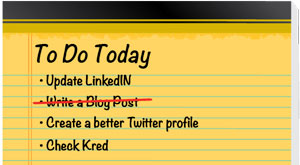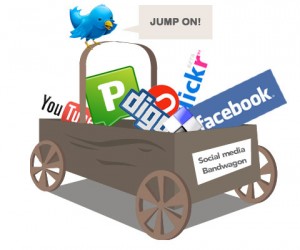Profession: Journalist. Not as simple as it used to be.
The internet has impacted the world in many ways, many of which have altered the journalistic profession as it used to be. The internet, and more specifically social media, has provided the opportunity for anyone with a passion for writing or breaking news to be heard. It has also put more demands on professional journalists, making it essential for them to have a prevalent online presence, as well as preforming their jobs as they have always done. In this post, I plan to examine each of these elements of impact that have altered the life of journalists around the world, and at the end post a query to you the reader.
The first point I mentioned was how social media has made anyone who wants to be, in essence, a journalistic voice. With the rise in social media sites like Facebook and Twitter, anyone who can access the internet can report on news that they see around them before the media is even on the scent of the story. With the rise of social media sites such as Word Press that offer free blogging services, such as this blog, it allows once again for anyone who has access to the internet to post whatever they would like. The issue with these modern day amateur journalists is the news they put out could be slighted by their views, here say, or even made up completely. However with the speed and accessibility of the internet, if the story catches interest it can spread across the world in a metter of hours, the truth a lost concept in the frenzy of discovering breaking news or fresh gossip. Examples of these incidents include the recent “death” of Bill Nye the Science Guy on Twitter, or even the rapid spread of the offensive film made to hurt those of the Islamic faith, “Innocence of Muslims”.
The ease of anyone to report to an audience leads nicely into my second point: how professional journalists of today are expected to have a strong social media presence, as well as preform the duties they have always been expected to do. As an example, take any broadcast news reporter from a large nationwide network; beyond their normal hours of reporting and providing their expertise on other broadcasted shows, each has an official Twitter page, a Facebook, in most cases a blog, and sometimes even an Instagram account or You Tube channel (with the rise in the application’s popularity and depending on the netwrok). All of these are updated in real time when a news story breaks, as well as to update those who aren’t watching the television broadcast with one liners from the show or updates on guests who will be on the show throughout the day. Especially in the world of news reporting, or even politics, there doesn’t seem to be an “off switch” or clock out time in the world of social media. I recently met Taylor Dungjen, crime reporter for the Toledo Blade, and she discussed her social media presence as a reporter; you can follow her on Twitter at @tdungjen_Blade. Taylor told a story that particularly stuck with me, about how she was off the clock and out with some friends, when she got a tip from one of her Twitter followers. She proceeded to put her mind in work mode, wrote up a short piece updating her public, then continued on with her night.
This story leads me to my query: if you are working on social media for a company/brand/person that is not your personal account, are there set “work hours”? Or are you supposed to sit on their social media in case there is breaking news, so you can keep your followers as up to date as possible. To me, it seems like there should be a line between when work begins and when work ends, otherwise I would be working constantly and neglecting those people/things in my personal life that I care about and which also require my attention. Is there such a line? Should there be a line? Is this all dependent on your job and your company? I am curious for the answer, which I will try to discover sooner rather than later, but I would love to hear some outside thought on this as well!









